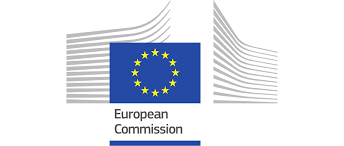
Advanced sustainable and safe pre-processing technologies for End-of-Life (EoL) battery recycling (Batt4EU Partnership)
ExpectedOutcome:
The pre-treatment process is the first and indispensable step in recycling Lithium-ion batteries (LIBs), which significantly affects the recycling rate of the spent devices and the extraction rate of the high-value metals in the subsequent metallurgical processes. The batteries also contain toxic chemicals, which should be preventatively separated to promote environmental protection and sustainability. Moreover, the pre-treatment processes also help to reduce the scrap volume and allow the separation of the battery components.
Projects are expected to contribute to all of the following outcomes:
- A European economic base which is stronger, more resilient, competitive and fit for the green and digital transitions, by reducing strategic dependencies for critical raw materials by promoting a circular economy.
- The direction of the EU battery industry towards the zero-waste concept by developing holistic, materials and energy efficient recycling processes that can increase the content of recovered mass and by improving the cooperation between recyclers and battery manufacturing through a vertical integration strategy, for those cases where battery and/or component repurposing is not a viable option.
- The circularity of battery materials, where also non-metallic elements (electrolyte, solvent, salts and polymers) are recycled back to use (as raw materials or valuable chemicals). The “cradle to cradle approach” will be addressed though waste pre-treatment by safe and sustainable separation and recovery.
- Environmentally beneficial processes for battery pre-treatment (pre-processing and separation) of the main elements to decrease the CO2 footprint and other emissions of the recycled materials.
- Safe technologies aimed at improved recovery yield, increased quality and purity level of the recycled/recovered materials, improved impurity removal.
Scope:
The current EOL LIB recycling technologies are focused on improving the recovering efficiency of Cobalt that is the most valuable material. However, other no-Co battery contents need to be extracted in one go to develop recycling processes with economic, societal and environmental perspectives. They, for instance, include low-density plastics, metal shells and foils, binders, separators, organic solvents, Li salt, anode active materials. Successful separation methods have the potential to enrich the constituent of targeted materials and improve the profit for recycling.
In recent years, several pre-treatment processes were tested at least at lab-scale (usually mechanical, thermal and chemical options). The goal is to develop and integrate new advanced pre-processing concepts that enable more efficient and safe technologies for recycling EoL LIBs. Substantial improvements should be achieved in the processes environmental and economic viability and in the circular economy, narrowing the sustainability gaps in the whole battery recyclates pre-treatment.
The following pre-treatment concepts are expected to be addressed:
- Battery sorting at component level that should be more efficient, accurate, also including recommendations for the standardisation of labelling of battery components, due to the huge variation of physical configurations, cell types and chemistries, with the aim of re-using the suitable components.
- Advanced pre-processing methods including (but not limited to) physical, mechanical, dry, thermal and aqueous pre-treatment methods that allow improved pre-concentration while minimising as much as possible waste side products.
- Process design enabling the recovery and valorisation of anode materials.
- Electrolyte valorisation through the development of sustainable and safe processes for the recovery of Li-salts.
- Separation of all the strategic battery materials that should be integrated into existing/innovative recycling processes to mitigate potential effect of impurities.
- Recovery of electrode current collectors (Al and Cu) that should be improved by developing more efficient separation methods of the metal foils from the electrode materials and easier removal of the organic binder.
- Other recoverable not-active materials from the EoL battery (solvent as EC, DEC, DMC, binders, separator).
- Pre-assessing concepts by their life cycle sustainability and safety impacts and studying overall techno-economical solutions for recovery systems in order to minimize cost, environmental impact and system losses.
Plans for the exploitation and dissemination of results for proposals submitted under this topic should include a strong business case and sound exploitation strategy, as outlined in the introduction to this Destination. The exploitation plans should include preliminary plans for scalability, commercialisation, and deployment (feasibility study, business plan).
Pre-treatment should not impede on second life, according to the principles of the waste hierarchy.
The topic will generate insights that may be of use for on-going research and innovation on new recycling processes and concepts from topic HORIZON-CL5-2023-D2-01-02.
Projects may collaborate and/or contribute to the activities of the Coordination and Support Action defined under the topic HORIZON-CL5-2022-D2-01-08.
Proposals could consider the involvement of the European Commission's Joint Research Centre (JRC) whose contribution could consists of providing added value regarding various aspects of battery sustainability.
This topic implements the co-programmed European Partnership on Batteries (Batt4EU). As such, projects resulting from this topic will be expected to report on the results to the European Partnership on Batteries (Batt4EU) in support of the monitoring of its KPIs.
Specific Topic Conditions:
Activities are expected to achieve TRL 5 by the end of the project – see General Annex B.
General Information
Projects are expected to contribute to all of the following outcomes:
1. A European economic base which is stronger, more resilient, competitive and fit for the green and digital transitions, by reducing strategic dependencies for critical raw materials by promoting a circular economy.
2. The direction of the EU battery industry towards the zero-waste concept by developing holistic, materials and energy efficient recycling processes that can increase the content of recovered mass and by improving the cooperation between recyclers and battery manufacturing through a vertical integration strategy, for those cases where battery and/or component repurposing is not a viable option.
3. The circularity of battery materials, where also non-metallic elements (electrolyte, solvent, salts and polymers) are recycled back to use (as raw materials or valuable chemicals). The “cradle to cradle approach” will be addressed though waste pre-treatment by safe and sustainable separation and recovery.
4. Environmentally beneficial processes for battery pre-treatment (pre-processing and separation) of the main elements to decrease the CO2 footprint and other emissions of the recycled materials.
5. Safe technologies aimed at improved recovery yield, increased quality and purity level of the recycled/recovered materials, improved impurity removal.

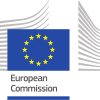
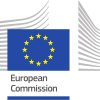

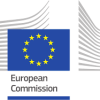
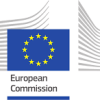
Advanced sustainable and safe pre-processing technologies for End-of-Life (EoL) battery recycling (Batt4EU Partnership) 0 reviews
Login to Write Your ReviewThere are no reviews yet.